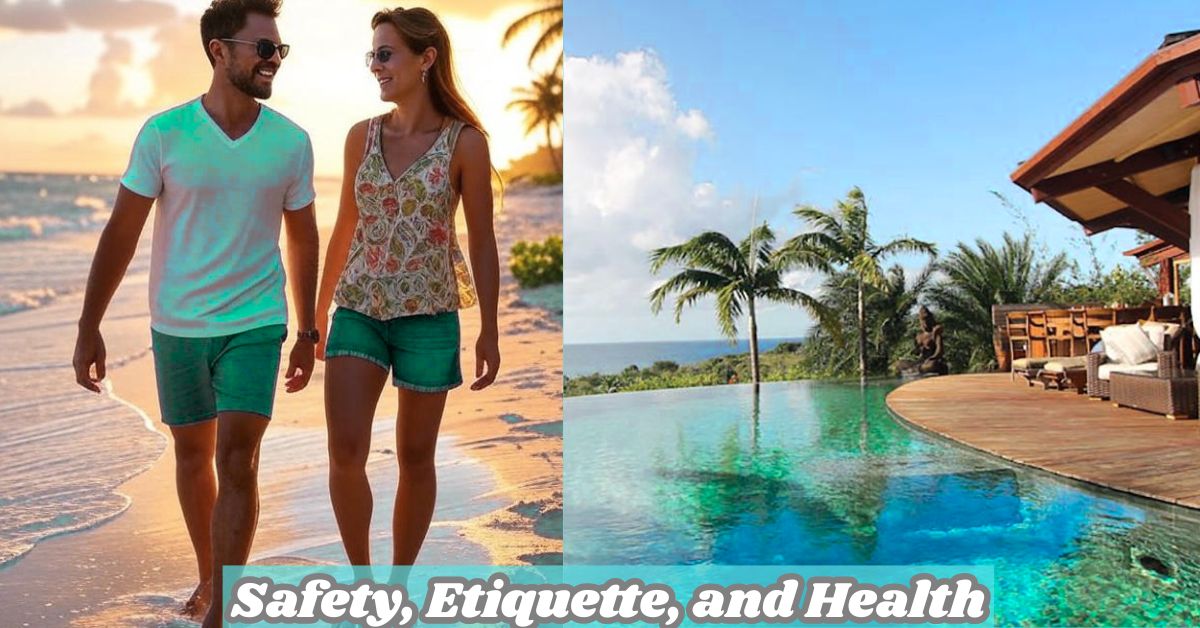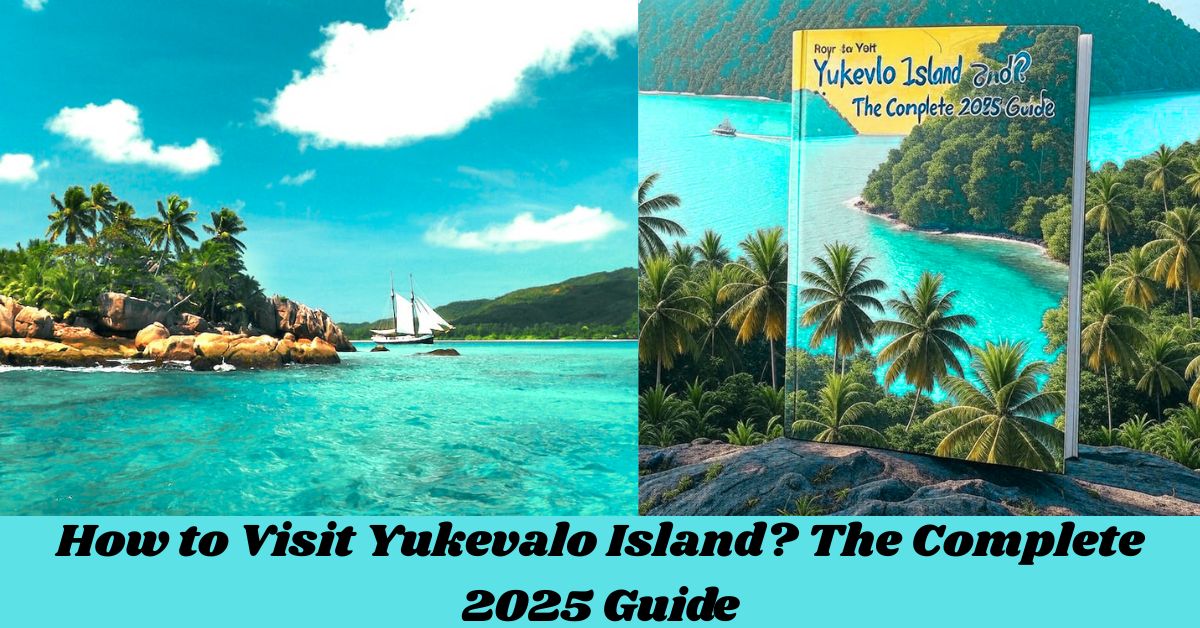Yukevalo Island remains a hidden gem for travelers seeking an authentic island getaway. Crystal waters surround this tropical destination. Local traditions thrive alongside natural wonders. Every corner offers a new discovery.
The island balances tourism with preservation. Visitors leave with unforgettable memories. This guide provides everything you need for your Yukevalo adventure.
How to Get to Yukevalo Island?
Yukevalo Island access requires planning. Several transportation options exist. Choose based on your budget and preferences.
By Air
Rivertown International Airport connects to major cities worldwide. Frontier Airlines offers direct flights from New York and London.
Spirit Airlines serves Tokyo and Sydney routes. Alaska Airlines provides connections from west coast cities.
After landing, two options await:
- Seaplane transfer (30-45 minutes): Island Hopper provides scenic aerial views
- Private charter: Yukevalo Air Charter offers exclusive service
By Sea
Ferry service remains the most economical option. The journey takes 2-3 hours from Port Naviti. Seabird Queen Ferry operates daily schedules. Boats depart at 9 AM and 2 PM. Evening ferries run only during peak season.
- Advance booking is essential during summer months
- Ferry tickets include luggage allowance
- Open-air seating provides the best views
- Indoor cabins offer comfort during rougher weather
Combination Routes
Drive to coastal towns then take smaller boats. This option allows for roadtrip exploration. Local water taxis connect from smaller harbors. Charters can be arranged for custom itineraries.
Best Time to Visit
Weather patterns affect your island experience. Seasons bring different advantages.
Dry Season (March-October)
Perfect weather dominates these months. Beach activities thrive under clear skies. Water visibility reaches its peak. Hiking trails remain accessible. Wildlife viewing opportunities abound.
Peak months (June-August):
- Highest tourist numbers
- Premium accommodation rates
- Advance booking necessary
- Full activity schedules
Turtle Season (April-July)
Turtle Cove becomes a marine sanctuary. Sea turtles nest on protected beaches. Hatchlings emerge under moonlight. Conservation rangers lead educational tours. Photography opportunities require special permits.
Quiet Season (November-February)
Occasional rain showers occur. Crowds disappear almost entirely. Accommodation prices drop significantly. Some businesses operate limited hours. The island shows its authentic character.
Currency, Language, and Local Details
Money Matters
The Yukevalo Kuna Dollar (YKD) serves as official currency. Exchange rates hover around 0.75 USD to 1 YKD. ATMs exist only in main settlement areas. Credit cards work at larger establishments only.
- Carry cash for small vendors
- Inform your bank about travel plans
- Tipping remains optional but appreciated
- Bargaining is acceptable at markets
Communication
Yukari language dominates local conversation. English speakers work in tourism sectors. Simple phrasebooks enhance your experience. Mobile coverage varies across regions.
- Wi-Fi exists in resorts and cafes
- Signal strength weakens in forested areas
- International calling cards work reliably
- Download offline maps before arrival
Essential Services
The Yukevalo Visitor Hub provides tourist assistance. Crystal Bay hosts the main medical clinic. Emergency services respond to +678 301 999. Police stations operate in major settlements.
Where to Stay on Yukevalo Island?
Accommodation options satisfy every budget. Location determines your daily experience. Each area offers unique advantages.

Luxury Options
Azure Bay Resort features overwater bungalows. Coral Pearl Retreat provides butler service. Yukevalo Grand Resort boasts five-star amenities. All luxury properties include:
- Private beach access
- Gourmet dining options
- Spa facilities
- Concierge services
- Activity coordination
Eco-Friendly Choices
Sustainable tourism thrives through conscious accommodation. Green Haven Lodge operates entirely on solar power. Ocean Breeze Eco-Stay uses local building materials. Jungle Retreat integrates with the surrounding forest.
Eco-resort features:
- Zero-waste policies
- Farm-to-table dining
- Educational programs
- Conservation contributions
- Local employment opportunities
Budget Accommodations
Affordable options welcome budget travelers. Blue Lagoon Guest Houses offer private rooms. Yukevalo Beach Hostel provides dormitory beds. Sunset Guesthouse serves home-cooked meals. Island Breeze Inn includes basic amenities.
Unique Stays
Glamping tents provide comfortable alternatives. Treehouse accommodations offer novel experiences. Homestays allow cultural immersion. Boat stays combine accommodation and transportation.
READ THIS BLOG: Sffarehockey Statistics Yesterday: Complete Breakdown of All Matches
Activities and Attractions
Adventure awaits at every turn. Natural wonders deserve exploration. Cultural experiences create lasting memories.
Natural Highlights
Crescent Bay stretches in perfect formation. Ancient Forest Preserve harbors rare species. Yukevalo Cliff provides panoramic vistas. Crystal Bay offers tranquil swimming.
Must-visit natural sites:
- Yukevalo Waterfalls
- Monkey Forest
- Hidden lagoons
- Mangrove channels
- Shadow Caves
Water Activities
Coral reefs thrive in protected waters. Snorkeling reveals vibrant marine life. Diving expeditions explore underwater formations. Kayaking allows coastal exploration. Paddleboarding suits all skill levels.
Beach activities include:
- Surf lessons on gentle waves
- Sailing excursions
- Fishing charters
- Sunset swims
- Beachcombing adventures
Cultural Experiences
Kava Ceremonies connect visitors with traditions. Yukevalo Cave displays ancient carvings. Village visits reveal daily life. Craft demonstrations showcase local skills. Music performances happen regularly.
Local village experience opportunities:
- Traditional cooking classes
- Weaving demonstrations
- Pottery making
- Storytelling sessions
- Dance performances
Dining and Local Cuisine
Island cuisine reflects natural abundance. Seafood dominates many menus. Tropical fruits add freshness. Traditional cooking methods preserve flavor. Dining options span all budgets.
Local Specialties
Coconut features in many dishes. Fresh fish arrives daily to restaurants. Root vegetables for meal foundations. Herbs grow wild across the island. Spice levels vary by establishment.
Must-try dishes:
- Kuna stew (coconut-based)
- Grilled reef fish
- Taro root pudding
- Fermented fruit drinks
- Cassava bread
Dining Establishments
Beachfront restaurants serve sunset views. Village eateries offer authentic flavors. Resort dining provides international options. Street food stalls offer affordable bites. Cafes serve local coffee varieties.
Culinary Experiences
Cooking classes reveal local techniques. Market tours showcase ingredients. Farm visits demonstrate sustainable practices. Fishing trips end with fresh meals. Food festivals occur seasonally.
What to Pack?
Thoughtful packing enhances your journey. Lightweight items suit the climate. Multi-purpose clothing saves space. Essential items prevent discomfort.
Essential items:
- Lightweight, breathable clothing
- Swimwear (at least two sets)
- Walking shoes for trails
- Sandals for beaches
- Rain jacket (light)
- Hat and sunglasses
- Reef-safe sunscreen
- Insect repellent
- Reusable water bottle
- Basic medications
- Camera equipment
- Dry bag for water activities
Safety, Etiquette, and Health
Awareness ensures positive experiences. Simple precautions prevent problems. Cultural sensitivity builds relationships.

Safety Considerations
Swimming areas have designated boundaries. Wildlife conservation rules protect animals and visitors. Trail markers should always be followed. Weather forecasts deserve daily attention.
- Never hike alone in remote areas
- Register water activities with accommodations
- Secure valuables appropriately
- Follow guide instructions precisely
Cultural Etiquette
Modest dress applies in villages. Permission precedes photography. Sacred sites demand respect. Traditional ceremonies have specific protocols.
- Remove shoes when entering homes
- Accept offered food graciously
- Learn basic greeting phrases
- Present small gifts when visiting homes
Health Precautions
Medical facilities offer basic care only. Travel insurance remains essential. Preventative measures avoid common issues. Prescription medications require personal supply.
Festivals and Events
Cultural celebrations mark the calendar. Planning around these enhances visits. Participation requires appropriate etiquette.
Annual Celebrations
Harvest Festival (April) honors agricultural bounty. The Ocean Ceremony (August) celebrates marine connections. Founders’ Day (October) commemorates island history. New Year festivities blend traditions and modern celebrations.
Seasonal Gatherings
Full moon ceremonies occur monthly. Seasonal fishing festivals follow migrations. Athletic competitions happen quarterly. Art exhibitions showcase local creativity.
ALSO READ THIS BLOG: TGD170.FDM.97 Software: Everything You Need to Know
Frequently Asked Questions
Is Yukevalo expensive?
Costs vary widely. Luxury resorts run 300-400 YKD nightly while budget options start at 30 YKD. Street food costs 5 YKD, fine dining is around 60 YKD.
What currency is used?
Yukevalo Kuna Dollar (YKD). Major resorts accept credit cards but carry cash for local vendors and smaller establishments.
Do I need a visa?
Most visitors receive 30-day entry permits on arrival. Check current requirements for your nationality before traveling.
Are there medical facilities?
Only basic clinics exist at Crystal Bay Health Post. Travel insurance with evacuation coverage is strongly recommended.
What languages are spoken?
Yukari (native), Island Creole, and English in tourist areas. Learning basic Yukari phrases is appreciated by locals.
Final Thoughts
Yukevalo Island offers more than beautiful scenery. Its cultural traditions remain authentically preserved. Natural environments thrive under protection. Visitors contribute to sustainable economies. Each journey creates unique memories.
The island rewards those who arrive with open minds. Slow travel reveals hidden treasures. Connections with locals enhance understanding. The spirit of Yukevalo stays with travelers long after departure.
Your travel itinerary should balance activities with relaxation. Allow time for unexpected discoveries. Embrace local rhythms and patterns. Remember that Yukevalo isn’t just a destination it’s an experience that transforms travelers.

Jerry is a seasoned SEO expert with a passion for content writing, keyword research, and web development. He combines technical expertise with creative strategies to deliver exceptional digital solutions.










